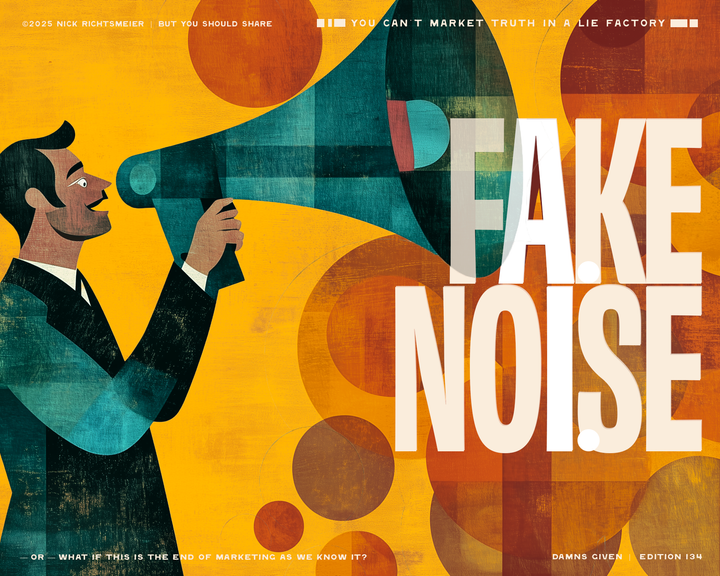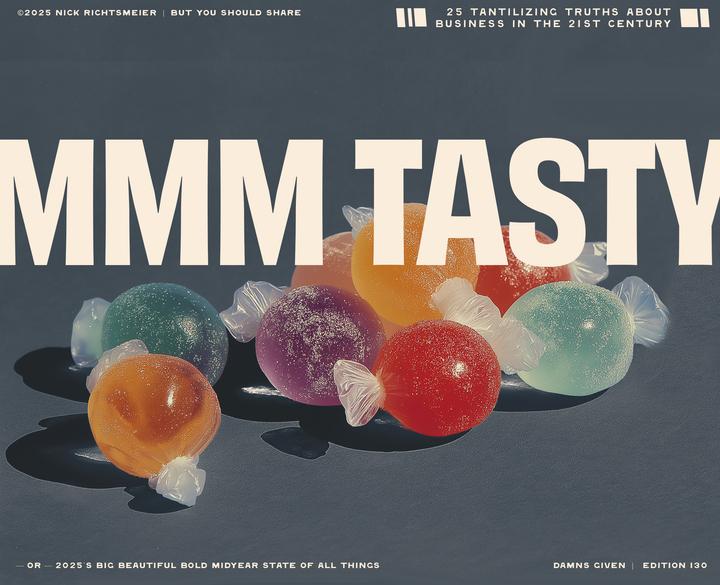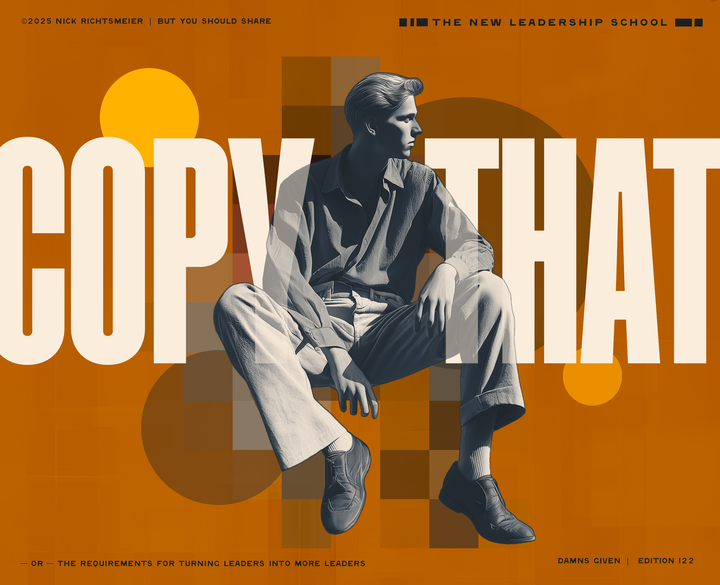AI quiet quits and trust comes back in fashion
Looking back, 2023 did a good job of making us believe that shiny objects, fancy AI gadgets, mass-produced content, and general internet tomfoolery would grow businesses in scale and trust. Turns out they were wrong, again.

Well, for being a cold week in December, a lot went down in the world of growth, trust, and everything in between last week. The best news? Overpromising is going out of fashion. A harbinger of possibility for people like you.
Rather than bore you with an extended intro, I suggest we jump right in.

YES... they were all of them deceived.
It's the 20th anniversary of Lord of the Rings: Return of the King, my son and his friends and I will be hitting the theater this weekend to see it in all its glory. Many memes have survived the famous trilogy, but the most relevant has always been the story of villain Sauron the Great giving out shiny objects to men, dwarves, and elves, and then making one ring to rule them all as a way of enslaving the earth—a metaphor applicable to nearly everything these days.
This week, the internet—the world's biggest ring of power—continues its 2023 revelation to the "other ring that was made" in the digital revolution whose wake defines our existence. My favorite is Bill Gates awakening from his utopian slumber to comment:
"The people who drove the digital revolution, including myself, really thought that the world would get more rational..." Instead, what we got is space for a "critical mass of crazy people...finding each other."
Thanks, Bill. Better late than never. Thanks to Twitter/X and TikTok, 1 in 5 Americans under 30 think that the Holocaust is a myth. So, yeah, all that glitters is not gold.


NO... Content isn't King (or Queen).
With any luck, we are coming out of the orgiastic fever dream created by the "everything is content" obsession. Chief evidence this week coming from the grossly overpriced Hello Sunshine! (Reese Witherspoon's production house) which will miss its revenue target this year by 90%. And this year The Morning Show was actually good! That should count for something.
Maybe the idea that everything is content and companies need just to ship as much distraction Olympic trash as possible maybe isn't the way to build the economy of the future? Just a thought.

Maybe... you're too cheap.
Value-based businesses—you know, those old classics where you have to deliver quality people want to own for a long time—have been having a bit of a hard time. Media, particularly the social variety, has been overrun by the cheap and the fast (see this week's "NO"), leaving advisors, professional services, and the like to suffer while WeWork—a company that does nothing for no one—loses billions going bankrupt... again.
Turns out, if it's value you're selling, you've got to price like it. (A reality wealth managers seem to have recently forgotten.) The killer combination of legendary storytelling (another missing tool in most professional service businesses) and reasonably high prices is being lost. And with it, the perception of luxury that brings your best clients to the table.
Time after time I see trust-based businesses misunderstand price. The fastest way to be treated like an expendable commodity is to act like one. The fastest way to be treated like a service that people love to buy and is incredibly valuable is to price like one.
Next year: Tell a better story and charge more money.

Seriously... ChatGPT is quiet quitting.
Lost in this year's lollapalooza about Large Language Models, and specifically OpenAI's ChatGPT, is the cost of running such winsome tech. By some estimates, it costs OpenAI a nickel every time you ask ChatGPT a question, and the volume of heat-managing water and gigawatts of electricity to run the server farms would terrify any eco-conscious person.
So, it seems, ChatGPT is jumping on the nation's favorite craze; Quiet Quitting. Paid users are finding the bot refusing to do menial tasks, shortening the content its willing to generate, and referring people to other sources versus doing the work itself.
Now before Boomers start calling ChatGPT a <<gasp>> typical Millennial, remember that OpenAI sees itself as the protector of the flame of the future of ALL of AI, not just your requests for internet data search.
Add to this that Google's launch of its ChatGPT killer "Gemini" was full of fake video and capabilities... the Year of AI is going out with a bit of a whimper.
Shiny objects will always overpromise and underdeliver. Where I get weary is industry gatekeepers and "thought leaders" who would rather position themselves as the newest expert on sparkly nothings than actually stand in the arena with people and build real businesses.
Trust is relationship+risk. A bot that can quit on you just when you need it most offers many benefits. But trust isn't one of them.

Now...three attention shifts for 2024.
Looking back, 2023 did a good job of making us believe that shiny objects, fancy AI gadgets, mass-produced content, and general internet tomfoolery were going to grow businesses in scale and trust.
The shortcut kings will always be shipping their attention-grabbing solutions, feeding more and more money, power, and influence to pseudo-monopolies, leaving mid-market trust businesses like yours on the extraction table.
What can you do? You can manage attention. Here are my three attention tips for 2024:
- Contextualize everything. Every time someone makes a suggestion, ask them: "How does this work in my specific context?" An advisor/agency/consultant's ability to think contextually is the only thing you should be paying for.
- Shift your growth planning to where the relationships are. The digital shortcuts around relationship-building are being decimated in droves, and AI (despite its aforementioned work ethic) will not slow down in 2024. Remember trust=relationship+risk.
- Build a system for quality thought leadership at scale. Your ability to turn your internal genius into external value for your clients and do it at scale and on repeat will be how your organization breaks through ceilings next year. Content isn't king. Intellectual capital is.
One thing you can do for me?
If you learned one valuable thing today - forward this to someone. Editions and the work we do at CultureCraft lives exclusively by word of mouth.
Your forward is the best Christmas present a guy like me could receive.



